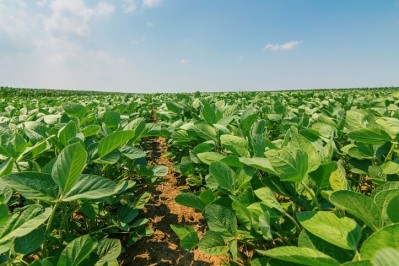US organic fraud lawsuits call attention to ongoing regulatory change

The four individuals named in the series lawsuits did not contest the charges but pleaded guilty in the US District Court for the Northern District of Iowa, eastern division, according to court documents.
Three feed grain producers, Tom Brennan, James Brennan and Michael Potter pleaded guilty to one count of wire fraud in October, according to court documents. Grain producer and seller Randy Constant also pleaded guilty to a charge of wire fraud in December.
In addition to having certified organic farms that primarily raised corn and soybeans, Constant owned and operated Organic Land Management and co-owned and operated Jericho Solutions (JS) of Missouri, Inc, which operated primarily in Ossian, Iowa.
The US organic industry is taking seriously the series of lawsuits involving a group of growers and sellers of organic feed grains, said Laura Batcha, CEO and executive director of the Organic Trade Association.
“Incidents of fraud and criminal activity are rare in organics, [but] the whole system takes them seriously because these bad actors pull value out of the system at the potential detriment to hard-working farmers who play by the rules and companies that purchase organic ingredients,” she told FeedNavigator. “It’s rare, but it can’t be tolerated.”
“Because of shortages in grains, that’s where we’ve seen a lot of this focused, and there are people who will take advantage of that gap in the marketplace,” she said.
However, the organic industry continues to revise its response process to find or prevent these kinds of incidents, she added.
It was “unfortunate” that it took so long for the situation to be identified, she said. “We expect already that this would not take seven years.”
Sentencing has not occurred for the cases. However, it is hoped that the penalties will send a signal that there are consequences to this type of behavior, said Batcha.
“You know about these investigations in organic because they can happen [and] you can get caught,” she added.
Lawsuit overview
Tom Brennan, James Brennan and Potter operated certified organic farms in Nebraska, though none of the three owned the organic certification, according to court documents.
All three were alleged to have sold organic and non-organically produced grains to JS and other customers who had been told the grain was organic.
From 2010 through at least 2017, most of the grain sold by the three was “fraudulently marketed as organic,” and they were aware of the “scheme,” according to court documents.
Each of the three is thought to have received more than $2.5m for the grain sold.
All three pleaded guilty to the count brought against them, according to court documents.
In the case brought against Constant, he “fraudulently represented or caused fraudulent representations to customers that grain being sold was certified organic because it had been grown as part of either his or OLM’s certified organic farms in Nebraska or Missouri,” as per court documents.
“In truth and fact and as the defendant then well knew, at least 90% of the grain being sold was actually either entirely non-organic or a mix of organic grain and non-organic grain,” the lawsuit stated.
From 2010 to 2017, Constant sold or “caused the sale” of more than $140m in grain called organic, of which the majority was not.
Funds were transferred via wire transfer to pay for grain that was “fraudulently marketed and sold” as organic, according to court documents relating to why all four were charged with wire fraud.
Constant will be required to pay restitution following the entry and court acceptance of a guilty plea.
“Defendant will be required to pay full restitution to all victims of the offense, including relevant conduct victims, and that, at a minimum, the full restitution owed will equal at least $128,395,732, which includes at least $205,604 owed to the USDA related to crop insurance policies,” said Judge Mark Roberts in his acceptance of the guilty plea.
However, both Constant and the government have the ability to appeal the sentence, the judge added.
Oversight activities
The organic industry has made some changes to oversight activities in recent years that could have helped highlight the situation, said Batcha.
Previously, a rule on residue testing was established, which also started requiring that all positive residue tests be examined, she said.
The oversight process also added a series of random test by organic certifiers every year.
“Many of the advancements that industry is focused on and the National Organic Program (NOP) is focused on in terms of tightening the oversight, it’s those very actions I think that brought this to conclusion and uncovered it so I think that that is important,” she said.
Going forward, the NOP will be increasing its investigative approach, said Batcha. It has already started coordinating with other government agencies and working with law enforcement.
In the recent lawsuits, the individuals faced charges of wire fraud, she said. “That takes coordination between NOP and federal authorities,” she added.
Additionally, the Farm Bill passed in December is set to bring more changes for oversight, she said. Rulemaking for the changes is in motion.
One of the top priorities will be to include acreage reporting from organic producers to a database system at the US Department of Agriculture (USDA), she said.
“There would have been no way to perpetuate this kind of scam for that many years had that data been available transparently,” said Batcha.
“Currently the database at USDA lists all of the certified operations and what it tells you is if your certificate is in good standing,” she said. “But what we’re talking about is aggregating data in terms of acreage reporting – without even attaching to an operator – for an inspector [to be able] to compare the sales reported out of Nebraska and Iowa versus the acres in cultivation.”
That change would have allowed an inspector reviewing state production amounts to see that more was being generated than the certified acres permitted, she added.
Another part of the proposed changes will be to end the current certification exclusion for brokers and middleman, she said.
“Those operations would all come under certification and require annual inspections, and that’s where you’d pick up on a lack of alignment being able to confirm volumes in versus volume out,” she added.
Both regulatory changes apply for operations inside and outside the US, she added.
The OTA is also looking at private sector practices to address industry oversight, Batcha said.
There will be a program launching this year to support companies in developing and implementing their own fraud prevention programs.
“An important part is to train operators what to do when they think something might not be right,” she said. “Rather than just opting to not make the purchase yourself because you’re not confident, [think about] what [should be] the next steps and who you need to report it to.”
Buyers and sellers of organic feed grains and products asking more questions also can act to dissuade bad actors operating, she said.















